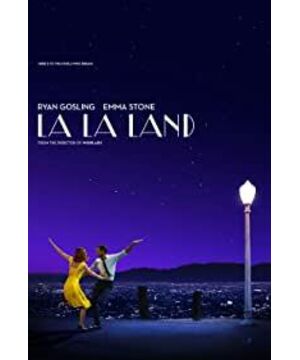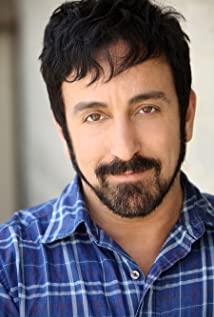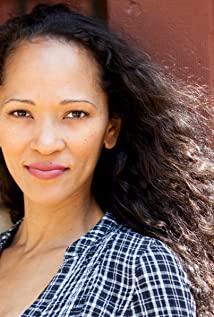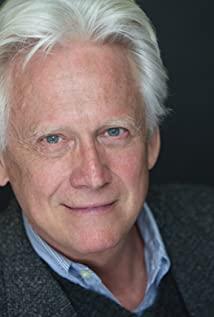"City of Philharmonic" is about "movie", which is certainly true. In particular, director Damien Chazelle (Damien Chazelle) pays tribute to Hollywood’s golden age of musical and dance films in the form of musical performances. There are countless classic musicals in the play: "The Umbrella of Cherbourg" (The Umbrellas of Cherbourg, 1964), "The Young Girls of Rochefort" (The Young Girls of Rochefort, 1967), "Singin' in the Rain" (1962), "Lovely to Look at" (1952), and even later "New York, New York" (New York, New York, 1977)... There are many, I believe there will be many people who will write articles for analysis, so I won't repeat them here. What I want to say in detail are the other two classic movies directly named in the movie: "Rebel Without A Cause" (1955) and "Casablanca" (1942).
"Rebellion Without a Cause" is the actor Gosling's favorite movie (even the dialogue has been memorized), and it is also a story that took place in LA (Los Angeles). The male and female protagonists in "City of Philharmonic" watch "Rebellion Without a Cause" in a movie theater, but the film burns, and then they come to "Rebellion Without a Cause" James Dean and Natalie The Griffith Observatory where Natalie Wood dated, walked where James Dean and Natalie Wood walked, paying tribute to the movie. But the interesting details are before this. When Gosling and Stone met for the second time, Gosling wore a classic James Dean outfit in "Rebellion Without a Cause": a white T-shirt and a bright red jacket (this Body attire has almost become a symbol of the times). When Gosling had a fight with Stone and learned that she was an actor, he said to Stone: "Let’s see you in the movie." This subtext implies from the very beginning a tribute to "No Cause" The drama of "The Rebellion" also foreshadows their fate that this love will survive in the "movie" and will eventually be accompanied by the "movie".
And "Casablanca" is the heroine Stone's favorite play, she is even a fan of "Casablanca" heroine Ingrid Bergman (the poster of Bergman is on the wall in her house). Towards the end, when Stone walked into Gosling’s Jazz Bar, her fate completely echoed with the "Casablanca" she loved.
In "Casablanca", the protagonist Bogar opened a jazz cafe. At the beginning of the story, he ran into her ex-girlfriend Ingrid Bergman in the cafe, and Bergman was already around him. With another male partner. Bergman asked their common black friend Sam (who is also a jazz singer) to play her a song called "As Time Goes By", which is no different from her and Bogart's love song. At the end of "City of Philharmonic", Gosling played the same love music he played when he first met Stone (in the music album of "City of Philharmonic", this song was named Theme music for the two). When Gosling played the music, a montage appeared in the movie, and this montage was the climax of the play and the most touching passage in the movie. This image truly revealed that the movie is outside of "love". The real topic is actually "movie".
In the parallel time and space of that "movie": they live together beautifully, get married and have children, and are happy-yes, their love is still "see in the movie", see or leave, never change. In this video, in addition to paying tribute to many classic movies, it also brings their love scene to Paris, and Paris is also the place where Bogart and Bergman fall in love in "Casablanca". Another interesting aspect of this montage is: Stone’s interview scene was deliberately shown as a silhouette, showing the origin of the “movie”; Stone and Gosling sat together watching the projector cast their “happy life” The picture once again confirms the attribute of "movie".
In fact, I think "City of Philharmonic" is not only about the love of movies, or filling the shortcomings of reality with movies. More often, the movie uses such a love story, in fact, it is the far-reaching "influence" of the movie (or art) on people. In the movie, the heroes and heroines know each other because of their common preferences for art. In addition to encouraging each other and achieving each other, what is more important is their influence on each other.
Just like Stone is not keen on jazz, but Gosling changed her view on it; she originally hoped to meet some high-class directors or producers by participating in some social parties to realize her ideal of acting, but Gauss Lin asked her to learn to write. What's interesting is that when Stone started to write her own screenplay, the roommates who lived with her before (who are eager to be strong and powerful) all left the scene and no longer appeared, and Stone did. Embarking on the road of real "art", if it were not for this, she would not have been able to impress the producer in the last interview (because the producer said that she needed the actor's "creative" ability); the same, when Gosling In order to make a living with the band to tour for a long time, when he almost gave up on his ideals, only Stone told him that it was not the life he should live. She even designed the name of his future jazz bar for him, freeing him from gimmicks and returning to the music itself.
In fact, there are many interesting details in the movie: For example, Stone finally walked into Gosling’s jazz bar because her husband heard jazz and proposed to go in together to listen to it-the husband she finally found also liked jazz. , Who can say that this is not the "influence" brought to her by Gosling? For another example, in the movie, Gosling’s sister seemed to dislike Gosling’s intoxication in music at the beginning, but in the movie she was arranged to marry a black man. Is there any "influence" of Gosling and jazz in this?
The real topic in the movie is actually the song "Audition" that Stone sang during the interview. In that song, Stone tells a story about her aunt: her aunt is an actor and "influences" her. Very huge, her aunt took her to watch old movies (including "Casablanca") since she was a child, and cultivated her love for movies and performances. She told her that although it is inevitable to suffer pain to engage in art, it is the key to opening a new world. Stone sang emotionally, but the lyrics showed the far-reaching "influence", including in the end Stone directed and acted in the stage play. Outside the window behind is the Eiffel Tower in Paris. Although the movie does not show the details of the stage play, However, it reveals that Stone's original intention to perceive "art" comes from his aunt-in Stone's "Audition", it is the story of her aunt in Paris.
This theme of "influence" actually exists not only in the love story, but also in the film format itself. In this movie, the director deliberately chose film, and used the old cinemascope to anamorphic wide-screen shooting, paying tribute to the songs and dance movies of the golden age. You know, whether it's film or cinemascope, or golden age song and dance genre films, all have actually ended in this era, just like the movie theater that screened "Rebellion Without a Cause" in the movie, and finally ended in business.
Isn't all this just like the love story of Gosling and Stone in the movie? Although it was once beautiful, it is not without regrets and sadness in the end. However, the "influence" and "oscillation" left by these films are timeless and profound. Just like Damien Chazelle made this film that is popular all over the world, isn't he just telling the world the nourishment that these movies, music, and art give him? A creator used a movie to lament the influence of art on people, to pay tribute to his films and music, to express his love for music and to influence more people. I really can’t think of a more affectionate and romantic experience than this. Thing.
So when I saw the end of the story, when Stone looked back and looked at Gosling, although it was full of sentimentality, in the end it was a warmth and comfort that replaced it in my heart. Because I know that the smiles of Stone and Gosling are more of gratitude and gratitude-thanking us for loving each other, thanking each other in our lives, thanking us for walking side by side on the road of dreaming and achieving each other, and That mutual influence will remain in my heart and in my life forever.
I really like the lyrics that the lyricist Huang Zhan filled in: "Do you know that things always change, change is eternal", I think, when things change, isn't the movie also eternal? Just like Gosling and Stone said before they separated: "I will always love you", in fact, they said it was just a "movie". Yes, let them love each other forever in the "movie", until they die and never separate. As we know, we will continue to love movies from now on.
Determined, convinced, and for life.
(The copyright belongs to Miying.com, please do not reprint without permission)
View more about La La Land reviews










